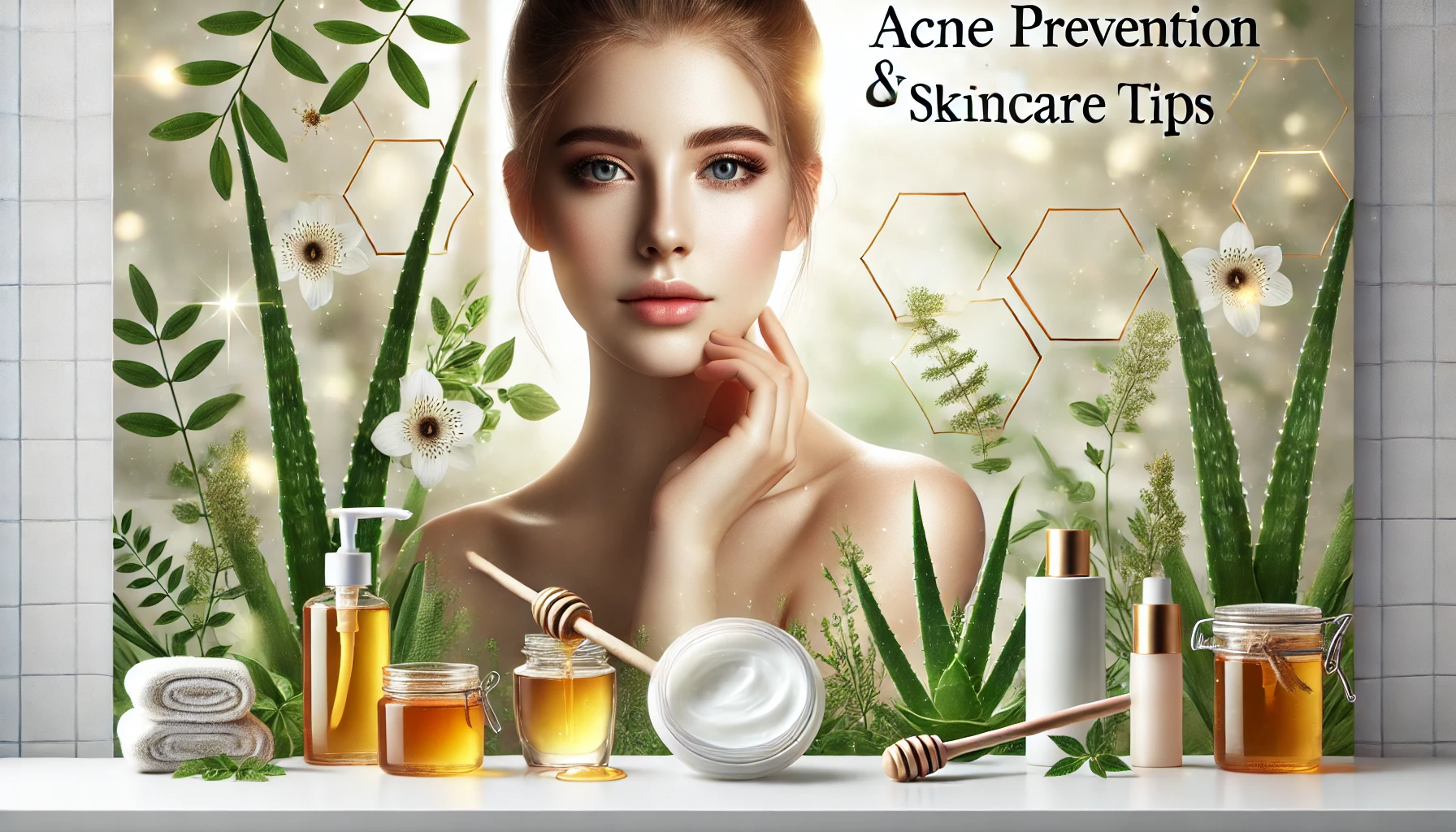Breaking Down Acne: Common Causes, Types, and How Hormones Play a Role
Acne is more than just a skin condition; it’s a frustrating experience that many face at some point. From teenagers grappling with hormonal surges to adults managing stress-induced outbreaks, understanding acne’s causes is the first step toward prevention and treatment. In this blog, we’ll explore what causes acne, examine the types of acne, and uncover the role of hormonal acne while providing actionable solutions to keep your skin clear and healthy.
What Causes Acne? Identifying the Culprits
Acne develops when your skin’s pores become clogged with oil, dead skin cells, and bacteria. Here are some key contributors:
- Excess Sebum Production: Overactive sebaceous glands can clog pores, especially during hormonal shifts like puberty or menstruation.
- Bacterial Growth: Propionibacterium acnes, a bacteria found on the skin, thrives in clogged pores and triggers inflammation.
- Hormonal Imbalances: Hormones like androgens increase oil production, leading to hormonal acne.
- Dietary Triggers: High glycemic foods, dairy, and certain oils can exacerbate acne.
- Poor Skincare Practices: Failing to cleanse or using products that block pores can contribute.
Learn more about the biology of acne from the American Academy of Dermatology.
Types of Acne: Understanding Your Breakouts
Acne isn’t one-size-fits-all. Knowing its type helps tailor treatments effectively.
- Blackheads and Whiteheads: Non-inflammatory types caused by clogged pores. Blackheads are open comedones, while whiteheads remain closed.
- Papules and Pustules: Red, inflamed spots; pustules contain pus.
- Nodules and Cysts: Severe, painful acne that forms deep under the skin and often leads to scarring.
To treat different types, use a mix of topical treatments like benzoyl peroxide for mild acne and seek professional care for severe cases.
Hormonal Acne: Why It Happens and How to Manage It
Hormonal acne often appears along the jawline, chin, or cheeks and is triggered by fluctuations in hormones.
Who is at Risk?
- Teenagers during puberty.
- Women experiencing menstrual cycles, pregnancy, or menopause.
- Individuals with conditions like PCOS (Polycystic Ovary Syndrome).
How to Manage Hormonal Acne:
- Oral Medications: Birth control pills or anti-androgen drugs regulate hormone levels.
- Topical Treatments: Retinoids and salicylic acid reduce inflammation and unclog pores.
- Dietary Adjustments: Limiting dairy and high-glycemic foods can help.
- Stress Management: Yoga, mindfulness, or regular exercise can minimize stress-induced acne.
How to Prevent Acne: Proactive Tips for Clear Skin
Prevention is the best approach when dealing with acne. Incorporate these habits into your routine:
- Follow a Consistent Skincare Routine:
- Cleanse your skin twice daily with a non-comedogenic cleanser.
- Exfoliate once or twice weekly to remove dead skin cells.
- Use moisturizers suited for oily or acne-prone skin.
- Adjust Your Diet:
- Opt for whole grains, fruits, vegetables, and lean proteins.
- Avoid sugar, processed foods, and excessive dairy intake.
- Minimize Stress: Stress increases cortisol levels, which can worsen acne. Prioritize self-care through relaxation techniques.
- Stay Hydrated and Rested: Adequate sleep and hydration keep your skin’s barrier strong and reduce acne triggers.
Acne Treatment Options: Exploring Your Choices
1. Over-the-Counter Solutions:
- Benzoyl Peroxide: Reduces bacteria and inflammation.
- Salicylic Acid: Unclogs pores and exfoliates dead skin.
- Retinoids: Promote cell turnover and reduce acne scars.
2. Natural Remedies for Acne:
- Tea Tree Oil: Its antibacterial properties help reduce acne.
- Aloe Vera: Soothes inflammation and heals scars.
- Honey Masks: Provide antibacterial and moisturizing effects.
3. Medical Treatments:
- Consult a dermatologist for prescription treatments like oral antibiotics, isotretinoin, or hormone therapy.
Explore effective acne treatments on the Regent Studies website.
Managing Acne Scars: What Works?
Acne scars can linger long after breakouts are gone. Here’s how to treat them:
- Topical Treatments: Use retinol or vitamin C serums to improve skin texture.
- At-Home Remedies: Aloe vera, honey, and green tea extracts can gradually lighten scars.
- Professional Options: Laser therapy, chemical peels, and microneedling offer long-term results for deep scars.
Acne and Diet: Does What You Eat Matter?
Research shows a strong link between diet and acne severity. High-glycemic foods spike blood sugar, causing increased oil production and inflammation.
Foods to Avoid:
- Sugary snacks and beverages.
- Processed foods and fried items.
- Excessive dairy products.
Foods to Include:
- Leafy greens, berries, and nuts for their antioxidant properties.
- Omega-3-rich fish like salmon for anti-inflammatory benefits.
- Whole grains and legumes for stable energy levels.
Building the Perfect Skincare Routine for Acne-Prone Skin
Morning Routine:
- Cleanse with a gentle cleanser.
- Apply a lightweight, non-comedogenic moisturizer.
- Use sunscreen with at least SPF 30.
Evening Routine:
- Double cleanse to remove makeup and dirt.
- Apply acne treatment products like retinoids or salicylic acid.
- Moisturize to restore hydration.
Fighting Acne
Acne may be complex, but with the right approach, it’s manageable. From understanding what causes acne to mastering an acne skincare routine and exploring effective acne treatment options, you’re now equipped to combat breakouts and keep your skin healthy.
Take charge of your skincare today by implementing these tips and staying consistent with your efforts. Remember, clear skin starts with knowledge and action.
For more resources, visit the Regent Studies website.




